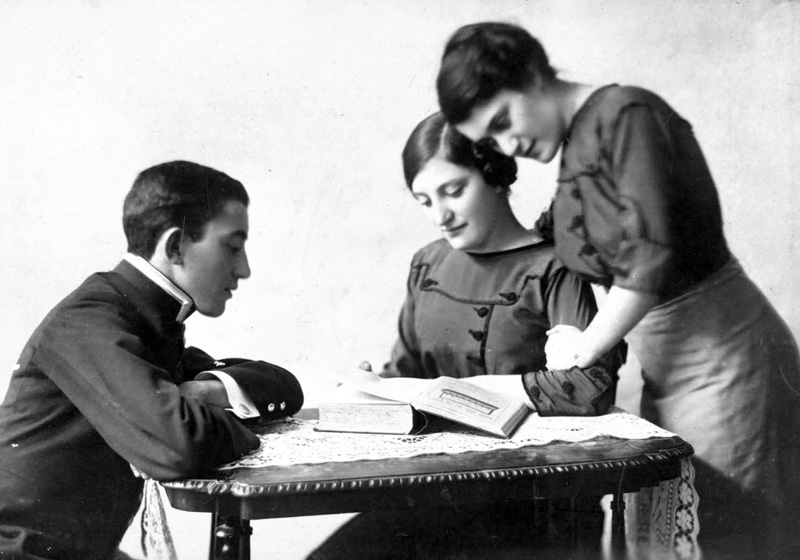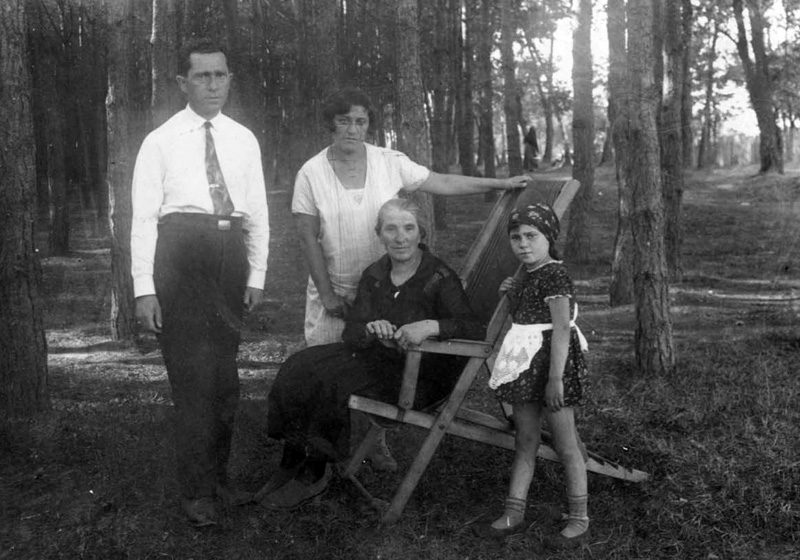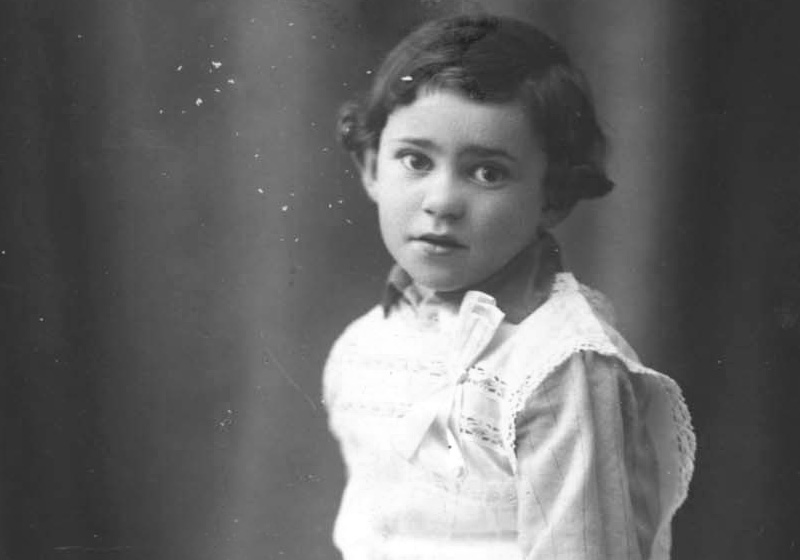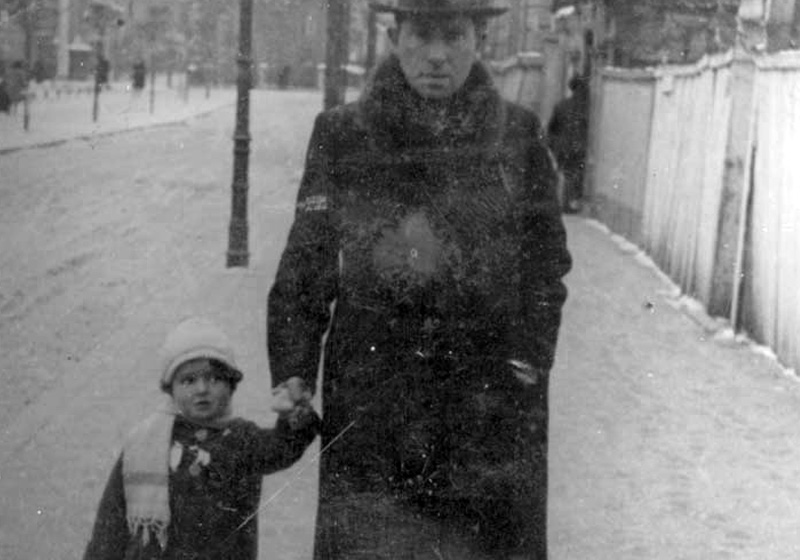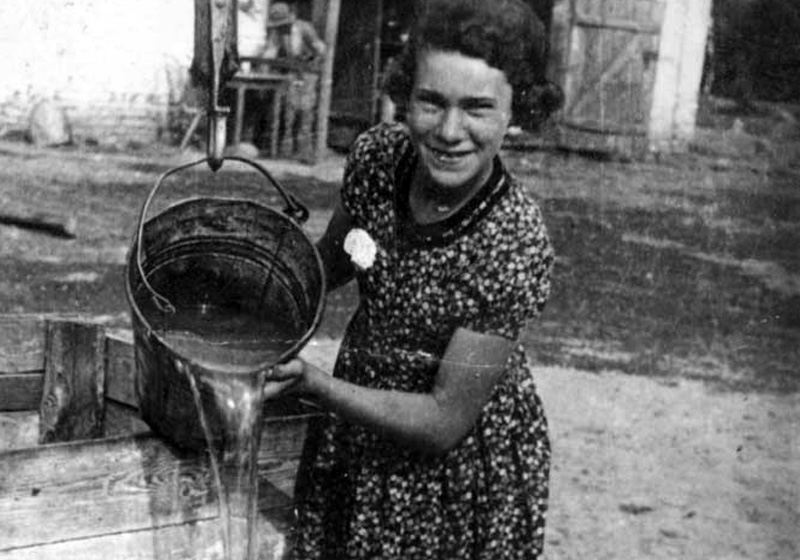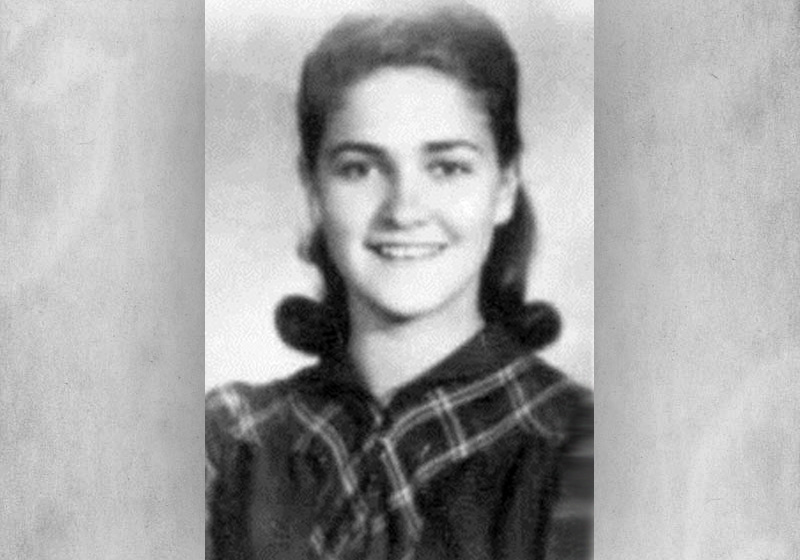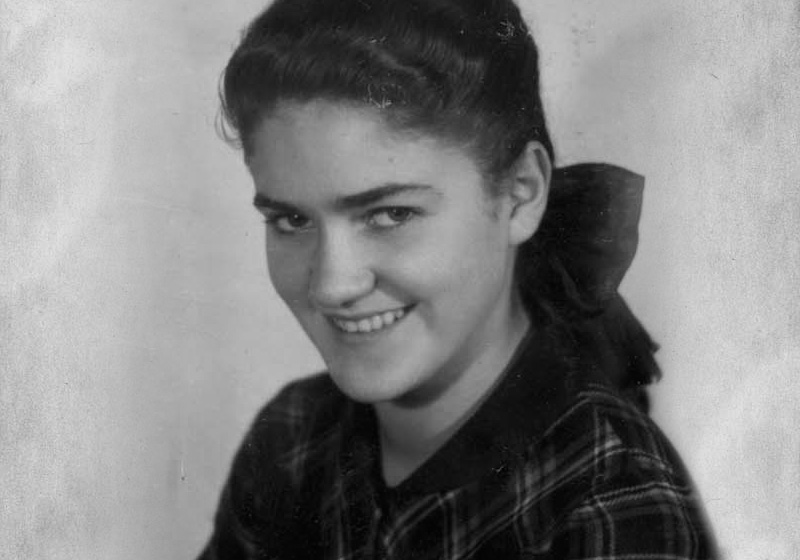Children's Homes for Holocaust Survivors
"My Lost Childhood"
Roma Glowinski (Ruth Marks): A Teenage Girl at the Children's Home in Zabrze
Roma (Ruth) Glowinski was born in 1931 in Kalisz, Poland, to parents Ephraim and Hela née Lubelski. Her sister Genia was seven years older than her. Ephraim was a leather trader and Hela was the principal of a private local school. The family maintained a traditional Jewish lifestyle, and Hela was Zionistically inclined. Genia attended the Hebrew Gymnasium in Kalisz, and Ruth started at the school run by her mother, but the war broke out two years later and interrupted her studies.
Every summer, the girls and their mother would travel to the village of Krzeszowka with relatives, and Ephraim would come and visit at the weekends. In the summer of 1939, the girls traveled to Krzeszowka as usual, while Hela went to a spa. Due to the prospect of imminent war, and Kalisz's proximity to the German border, the two girls cut their vacation short and returned home early. Hela returned in late August, and the family fled Kalisz, but were forced to go back there when the Germans occupied the city. On 20 November 1939, the deportation of the Jews of Kalisz began. The Glowinskis were deported in cattle cars, and reached Sandomierz after many trials and tribulations.
In Sandomierz, Hela obtained some textbooks and organized study classes. From time to time, Ephraim and Genia were seized for forced labor. In 1942, Ruth's cousin Gucia Glowinski escaped from the Warsaw ghetto and reached her family in Sandomierz, where there was a ghetto that was not fenced in, but leaving was still forbidden. Gucia informed her cousins that she intended to escape from this ghetto too. "Whatever happens, I'm moving on. I will not let the Germans catch me", she said, and offered to take Ruth with her. At the same time, Genia received an anonymous note in German at work, warning her of the impending liquidation of the Jews of Sandomierz, and recommending escape to whomever was able. Hela and Ephraim decided to entrust Ruth to Gucia's care. "Genia", they reasoned, "is grown up and can work, such that it is 11-year-old Ruth who is in the most danger." Before their escape, Ruth's parents drummed into her that she was from Kalisz, and that she should come back there after the war to meet them. They also dyed her hair so that she would look more Polish. 24-year-old Gucia was blonde and blue-eyed, and spoke perfect Polish without any trace of an accent.
On 10 October 1942, Gucia and Ruth left Sandomierz. Parting with their younger daughter, Ruth's father cried, and her mother recited "Shema Israel". They managed to leave the ghetto, board a train and reach Warsaw, where Gucia had acquaintances. There, they lived on the Aryan side posing as Poles. Ruth received five postcards from her mother, in which Hela expressed her regret that she had not sent Genia with them. The last one, written on 24 October 1942, was the final sign of life from her family. Ruth was eventually informed that her parents and sister had been taken from the Sandomierz ghetto and murdered. The circumstances of their deaths are unknown.
Gucia and Ruth moved from Warsaw to nearby Piastow, where they lived under assumed identities with Anna and Andrzej Kostrzewa, an impoverished Polish couple who lived in a one-room apartment with no running water. Anna was a seamstress and Andrzej was the school caretaker. Ruth became Wyslawa Sarpinska, a 13-year-old orphan, daughter of a Polish officer whose whole family had been killed, and Gucia became Halina. Their economic situation gradually deteriorated: Ruth and Gucia's money ran out, Andrzej was fired, and Anna was forced to sell her sewing machine, reduced to eking out a living as a laundress. Gucia started trading on the black market, and Ruth spent her time at the local library and doing odd jobs for the neighbors for a meager sum. One day, Gucia did not return at the appointed time. A few hours later, a Polish neighbor came to the Kostrzewas, and told them that Gucia had been caught buying and selling on the black market, her Jewish identity had presumably been exposed, and she was shot. Fearing for the safety of her rescuers, Ruth decided to leave. Anna calmed her down, saying: "You are not going anywhere. I believe that Jesus will help you. I will add another prayer, and you will also start praying." Ruth learned the prayers, and started accompanying Anna to church. Ruth recalls:
I started going to church, and I also started believing… and that gave me strength. There was a priest there who did not preach antisemitism…. The survival instinct was stronger. It wasn't a matter of being disloyal [to my upbringing], but simply that I knew then that there were no Jews, so I had to think ahead. This was the only way forward. Until that point, I hadn't met a single Jew. I was a girl, alone.
In January 1945, Piastow was liberated by the Red Army. Ruth stayed with the Kostrezewas, and started to attend the local school. A Jewish family she met in Piastow gave her the cold shoulder. Ruth wrote to the Jewish Committee in Kalisz and let them know where she was. She did not entertain any hopes that anyone from her family had survived. Mr. and Mrs. Holz, friends of her parents from Kalisz who survived as partisans, came to Ruth and asked her to join them. "If your mother was alive, she would still prefer that you would remain Jewish", they told her. Ruth was torn. She felt a huge debt of gratitude to the Poles who had saved her life. In agonies of indecision, Ruth approached the priest, confessed to her Jewish identity, and asked him whether she should convert to Christianity. He answered: "No. I look on this a little differently. If God caused you and only you to stay alive, perhaps you should continue [as a Jew]. You come from a very honorable people."
Ruth traveled to Kalisz, and sent a farewell letter from there to Anna and Andrzej, who took her departure very badly. She stayed with the Holzs for a while, and then decided that she wanted to immigrate to Eretz Israel (Mandatory Palestine). She made her way alone to Warsaw, to find a group she could immigrate with, and reached the children's home in Zabrze with the help of Yeshayahu Drucker, a chaplain in the Polish Army who retrieved children from Polish homes and convents and restored them to the Jewish fold. After about two months in Zabrze, Ruth departed on the "Rabbi Herzog train" to France, and reached the Mizrahi children's home in Strasbourg. While there, relatives in Paris located her, and wanted to adopt her, but she declined. Meanwhile, her uncle, Yitzhak Glowinski, her father's brother, who had immigrated to Eretz Israel in 1934, was informed of Ruth's survival, and he organized a "Certificate" for her. In 1947, Ruth immigrated to Eretz Israel, and went to live in her uncle Yitzhak's house in Ramat Gan.
Ruth enlisted to the IDF. In 1954, she married Uri Marks, an immigrant from South Africa, and they had two sons. Ruth remained in contact with her rescuers, and sent them packages from time to time. Communication was severed in 1967 due to the cutting of diplomatic ties between Israel and Poland, but the connection was reestablished 20 years later. In May 1988, Anna and Andrzej Kostrezewa were recognized by Yad Vashem as Righteous Among the Nations. The same year, Ruth traveled to Poland and was reunited with Anna after 42 years. Ruth wanted to bring her back to Israel to live with her, but Anna preferred to remain in Poland. After Anna's death, Ruth stayed in contact with Anna's niece.
In 1977, Ruth submitted Pages of Testimony to Yad Vashem in memory of her parents Hela and Ephraim and her sister Genia. In 2005, she donated the postcards from her mother, other documents and photographs to Yad Vashem, some of which are displayed here. Ruth concludes her memoirs with this message:
My advice to my children and grandchildren is to always be tolerant and patient towards others and extend a helping hand to those in need. During my life I have learned that even during tough and dark periods, a ray of light might appear in the form of good people with the ability to provide happiness and success.


